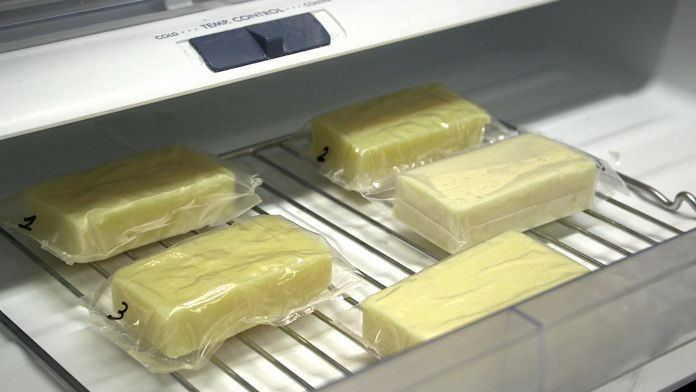In the various food industry, food packaging generally has done through plastic. But from nature’s point of view, plastic creates huge non-recyclable, non-biodegradable waste. And as we all know, plastic waste poses a huge threat to our Eco-system. Some plastics are suspected of leaching potentially harmful compounds into food. Current food packaging is mainly petroleum-based and not sustainable. It also does not degrade and creates large plastic waste that sits in landfills for years.
By keeping all above problems in mind, scientists now developing a new packaging film. To create an all-around better packaging solution, scientists from the U.S. Department of Agriculture are developing an environmentally friendly film. This food packaging film will develop by milk proteins. It is even edible. The films are strong oxygen blockers. Thus, it helps in preventing food spoilage.
According to researchers, if these films used in packaging, they could prevent food waste during distribution along the food chain. The films are 500 times better than plastics at keeping oxygen away from food. It has small pores and thus creates a tighter network that keeps oxygen out.
The researchers’ first attempt using pure casein resulted as a robust and efficient oxygen blocker. It was relatively hard to handle and would dissolve in water too quickly. They made some improvements by combining citrus pectin into the blend to make the packaging even stronger. It also becomes as more resistant to humidity and high temperatures.
After some improvements, the packaging films looks like a store-bought plastic wrap. But it is less stretchy. The material is edible and develops almost of proteins. Nutritious supplements like vitamins, probiotics and nutraceuticals might include in future. It is not much tasty, but flavors will add soon.
Laetitia Bonnaillie, Ph.D., co-leader of the study, “The coatings applications for this product are endless. “We are currently testing applications like single-serve, edible food wrappers. For example, individually wrapped cheese sticks use a large proportion of plastic, we would like to fix that.”
Single-serve pouches require staying sanitary. They require wrapping in a large plastic or cardboard container for sale on a store counter to prevent them from getting wet or dirty.
Being use as plastic pouches and wraps, this film could sprayed onto food, like cereal flakes or bars. Currently, cereals keep their crunch in milk due to a sugar coating. Rather than all that sugar, manufacturers could spray on casein protein coatings to prevent soggy cereal. The spray also could line pizza or other food boxes to keep the grease from staining the packaging, or to serve as a lamination step for paper or cardboard food boxes or plastic pouches. The U.S. Food & Drug Administration recently banned the perfluorinated substances that used to coat these containers, so casein coatings could be a safe, biodegradable alternative.
Bonnaillie says her group is currently creating prototype film samples for a small company in Texas, and the development has garnered interest among other companies, too. The group plans to keep making improvements, and she predicts this casein packaging will be on store shelves within 3 years.
